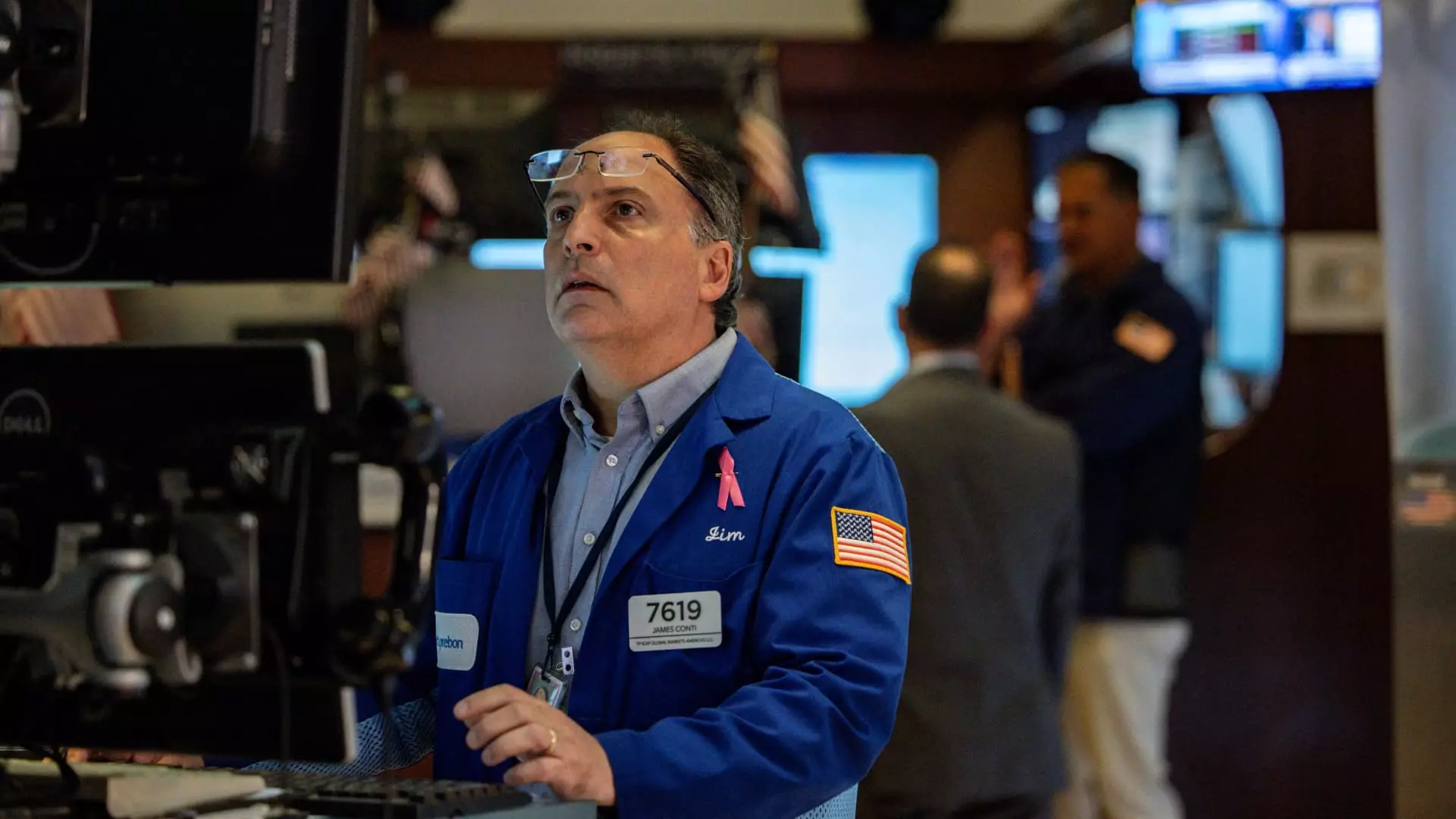Financial markets often serve as a barometer of global economic health, but their resilience is far more fragile than many mainstream narratives suggest. Recent trading sessions illustrate just how delicate this balance truly is. After a thrilling spike to record highs, the U.S. stock indexes sharply turned downward—a stark reminder that markets are heavily influenced by political noise and unpredictable policy shifts. The optimism fueled by a seemingly stable economy is being undermined by a looming cloud of trade tensions and protectionist strategies. Instead of being driven by fundamental growth, investors are increasingly caught in the crossfire of presidential threats and retaliatory tariffs that threaten to sow chaos in an already volatile landscape.
The Politics of Tariffs: A Misguided Strategy
President Trump’s recent escalation with Canada, exemplified by a staggering 35% tariff, underscores a troubling tendency to weaponize trade policy as a political tool rather than a pragmatic economic instrument. While some may argue that tariffs serve as leverage to renegotiate unfavorable trade terms, the reality is that this approach risks undermining long-term economic stability and fostering unnecessary uncertainty. Trump’s justification—citing fentanyl as a national security concern—may resonate politically, but it sidesteps the need for nuanced solutions rooted in diplomacy rather than punishment. His threat to impose even higher tariffs on other countries reflects a reckless game of brinkmanship that disregards the interconnectedness of global markets. Far from protecting American interests, such aggressive measures threaten to erode the foundations of international cooperation that underpin economic growth.
The Market’s Response: A Dangerous Denial
Despite the initial upward momentum earlier in the week, the recent downturn betrays the underlying fears that markets are grappling with. The surge to new highs was buoyed by a superficial confidence—fueled by rhetoric and hopes for future trade deals—that is rapidly evaporating as tariffs threaten to disrupt supply chains and inflate costs. The misleading optimism suggests that investors are still clinging to hope rather than facing the reality that trade conflicts often escalate beyond control. The absence of clarity on European Union tariffs and the lack of concrete measures during market hours exacerbate a sense of chaos. This week’s decline underscores a disturbing trend: markets are becoming increasingly reactive to political posturing, sacrificing long-term stability for short-term gains.
The Broader Implications: A Threat to Global Stability
The administration’s willingness to throw around tariffs as a tool for domestic political leverage risks fracturing the global economic order. Imposing tariffs on countries like Canada, Brazil, and potentially multiple others, risks triggering a cascade of retaliations that can stifle international trade and prolong economic uncertainty. This approach disregards the fact that global economies are interconnected—tariffs ripple across borders, raising costs for consumers and businesses alike. Furthermore, the focus on tariffs as a solution to complex issues such as drug trafficking or trade imbalances simplifies problems that require multi-faceted diplomatic solutions. It’s not just the markets that suffer; worker livelihoods, consumer prices, and long-term growth are all vulnerable to this shortsighted protectionism.
A Call for Responsible Leadership
What the markets desperately need is leadership grounded in pragmatic, collaborative policymaking rather than reckless showmanship. The concentration of power in the hands of a leader wielding tariffs as political weapons undercuts the stability needed for sustained growth. Policymakers must recognize that economic health is not built on fear and retaliatory brinkmanship; it depends on the capacity to foster international cooperation and trust. As investors brace for a new wave of earnings reports and inflation data, they must also grapple with the unsettling reality that current political strategies threaten to undermine the very foundation of economic progress. It is time for a recalibration—one that prioritizes stability over spectacle and dialogue over discord.


Leave a Reply